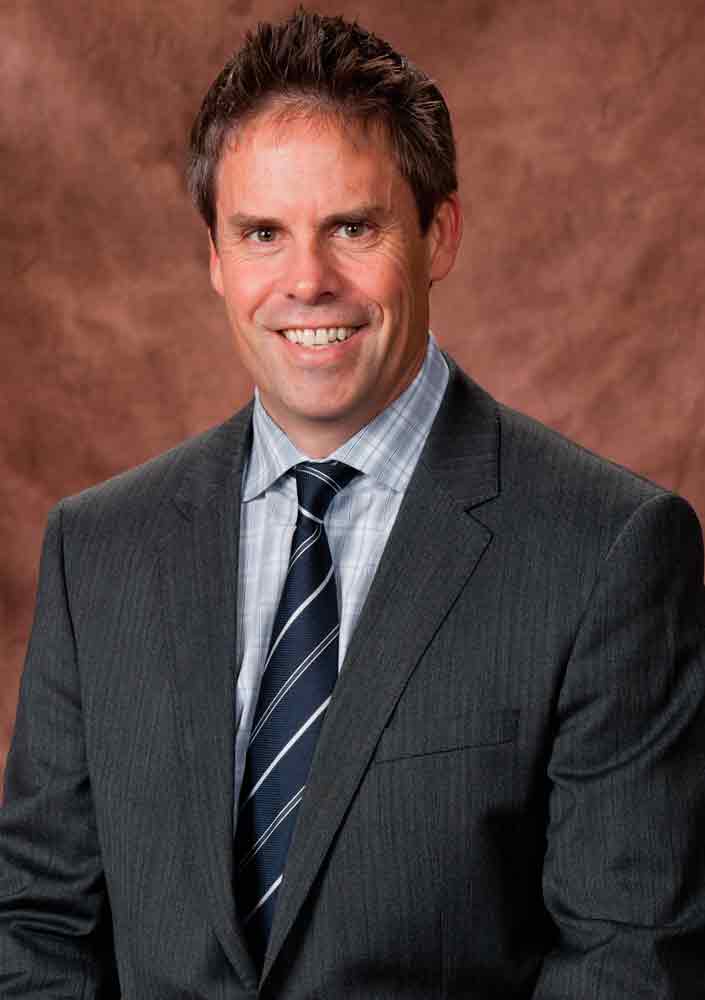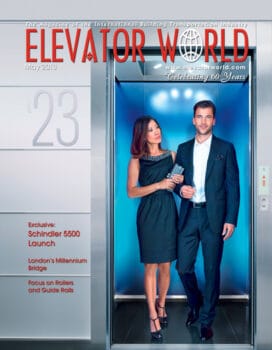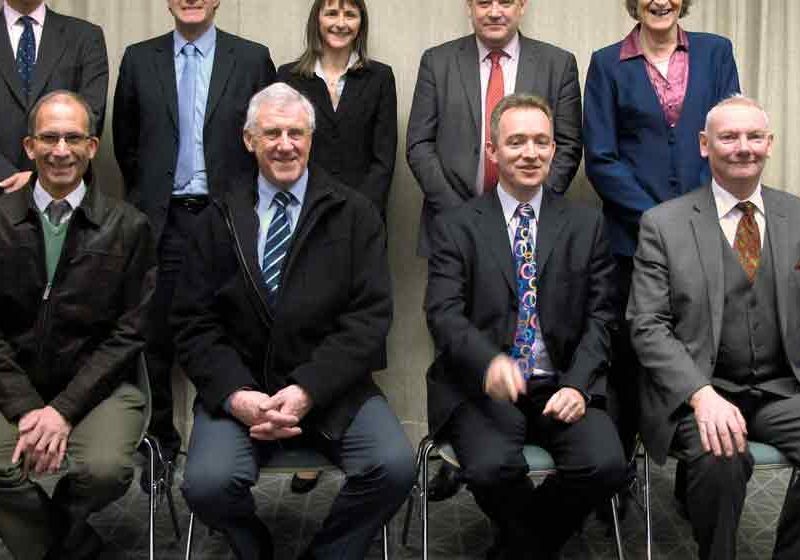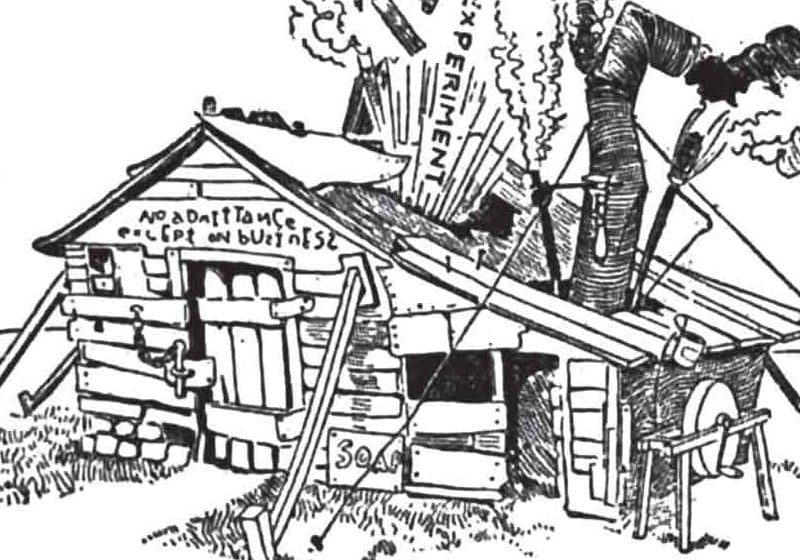Ryan Wilson, President of CECA and Sr. VP of ThyssenKrupp Elevator Canada, on the State of the Industry
May 1, 2013

Ryan Wilson (RW), senior vice president (VP) for ThyssenKrupp Elevator Canada, and current president of the Canadian Elevator Contractors Association (CECA), talked with ELEVATOR WORLD (EW) about his take on the industry and personal history while preparing for the CECA Annual Convention, taking place on June 4-8 in Niagara Falls, Canada.
EW: How did you get started in the elevator industry?
RW: It was recommended to me by a family friend, who worked in the elevator trade and said there was a turnaround situation requiring a management consultant for a one-to-two-year opportunity. That was 1995. I realized it was the right career for me when I saw its level of competitiveness, variety of challenges and ability to drive significant competitive advantage through culture and people management.
EW: Can you give us a brief history of your career up to this point?
RW: I started as a sales manager for Schindler in 1995 and became regional VP, Western Canada in 1997, holding that position until 2003. Following a short departure out of the industry as a director of the Inner-Tec Group, I joined ThyssenKrupp Elevator as regional VP, Western Canada. In 2005, I became senior vice president, Canada, based in Vancouver, Canada, of which I am a native. I hold a BA in Economics and an MBA from the University of British Columbia, the latter of which I earned in 1993.
EW: Did you have any mentors along the way?
RW: There are too many to list, but I have always prided myself on learning from people smarter and more experienced than myself (they make up a very big list) in different industries. I have had the good fortune to have worked in consumer products (beer), shipping and management consulting. I also currently sit as a director in the healthcare and civil construction industries, where I have the opportunity to stay current outside the elevator business. It is totally natural in our boutique industry to develop a myopic view of our respective businesses, and we all have to fight hard to continue to reflect and look for ways to motivate both ourselves and our people to truly create continuous improvement. I find acting as director in these industries very helpful.
EW: What good advice did your mentors give you?
RW: If you think your business is too strong to be beaten, you are about to suffer the biggest loss of your professional life. Never underestimate the capabilities and resources of your competitors.
EW: What is the biggest challenge you face in your current position, and how are you working toward overcoming it?
RW: Succession planning and recruitment for the strong growth that exists in the Canadian marketplace are my foremost concerns. I tackle it with continuous communication with our own employees, who are our best ambassadors for recruitment, as well as working with industry and academic institutions.
EW: What do you find most rewarding in your work?
RW: I find bringing a team together to achieve great things in the very diverse and unique markets across Canada the greatest reward.
EW: What advice would you give to someone considering getting into the elevator industry today?
RW: Be committed to learning and expanding your skills and knowledge. For those who truly embrace and fall in love with the industry, there is going to be a massive knowledge gap as our Baby Boomers move into retirement. If you are a high achiever and determined to do great things, there will be more opportunities than there are qualified people capable to fill them. For those willing to put in the sacrifices and time, they will be rewarded – no question.
EW: What does the future hold for the industry and your company?
RW: Canada’s economy has not been hit as hard as that of the U.S., but we are starting to feel the effects of fiscal tightening and overbuilding of the residential high-rise new-construction segment, and 2014 and 2015 could be very volatile. I believe if there is contraction, it will not be long term, and with continued growth in the resource sector and the strength of the Canadian financial system, investment will continue to flow into Canada. Given our tight alignment with the U.S. economy, if the U.S. continues to rebound, Canadian weakness in 2014 and 2015 will be less likely.
EW: What is your best advice for surviving this recession?
RW: Many companies reacted quickly during the past recession, sometimes discounting prices below cost in hopes of keeping market share, while at the same time carving significant overhead out of their organization in the short term. During that time, there was a lot of invaluable talent with high skills and good experience lost. The recipe for success in the elevator business is very simple: if you keep, mentor and support the best people, you will succeed. Construction always comes and goes in our business, but the beauty of the elevator industry is that segments of it are not reliant on the macro economy. There is no need to panic during times of contraction, and for those organizations that have a long-term view, they will have sustained success and significant market growth for a very long time.
EW: If you could change one thing about our industry, what would it be?
RW: I would like to see expanded technical schooling for elevator mechanics, improving overall skills, as well as access to more skilled professional tradespeople.
EW: What are your plans for retirement?
RW: My wife, Kirsten, and I have three kids, so I won’t be retiring anytime soon, unfortunately.
Get more of Elevator World. Sign up for our free e-newsletter.









